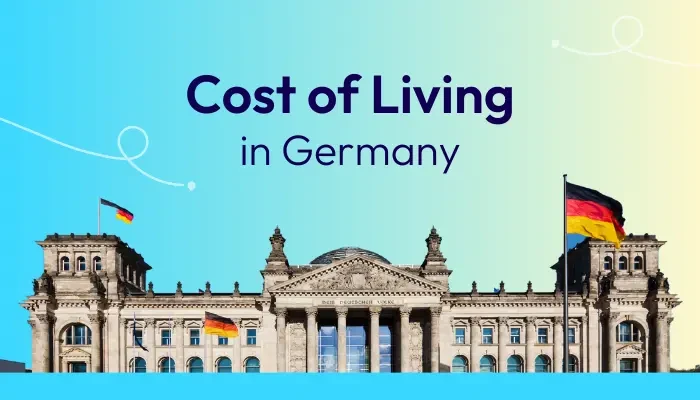Germany is renowned for its high quality of life, but like any country, the cost of living can vary significantly depending on where you live and your lifestyle. From housing to groceries, understanding the various expenses can help you plan your budget effectively. This article provides a comprehensive breakdown of the cost of living in Germany, offering insights into what you can expect in different areas.
1. Housing Costs
Rent and Real Estate
Housing is often the largest expense for residents in Germany. Rent varies widely between cities and regions. In major cities like Munich, Frankfurt, and Berlin, you can expect to pay higher rents compared to smaller towns and rural areas. For example, a one-bedroom apartment in central Munich can cost around €1,200 to €1,800 per month, while in Berlin, the same apartment might be between €800 and €1,200.
Utilities and Additional Costs
In addition to rent, utilities such as electricity, heating, water, and garbage collection add to your monthly expenses. On average, these utilities can cost between €150 and €250 per month for a standard apartment. It’s also common for tenants to pay an additional “Nebenkosten” fee, which covers shared building expenses and maintenance.
2. Food and Groceries
Grocery Costs
Grocery prices in Germany are relatively moderate compared to other Western European countries. On average, a weekly grocery shop for a single person might cost between €40 and €70. Basic items include bread, milk, eggs, and vegetables. Prices can vary depending on the store and region, with discount supermarkets like Aldi and Lidl often offering lower prices.
Dining Out
Eating out in Germany can range from affordable to pricey, depending on where you go. A meal at a mid-range restaurant typically costs around €15 to €25 per person. Fast food and casual dining options are generally cheaper, with a meal costing approximately €5 to €10. In major cities, you might find higher prices in tourist areas and upscale restaurants.
3. Transportation Costs
Public Transportation
Germany boasts an efficient public transportation system, including trains, buses, and trams. Monthly public transport passes range from €60 to €100, depending on the city and coverage area. In cities like Berlin and Munich, the public transport network is extensive and reliable, making it a convenient option for daily commutes.
Owning a Car
If you prefer to drive, consider the costs of owning a car, including fuel, insurance, and maintenance. Fuel prices are around €1.60 to €2.00 per liter, and car insurance can cost between €500 and €1,000 annually, depending on the vehicle and your driving history. Additionally, parking fees and maintenance can add to the overall expense.
4. Health and Insurance
Health Insurance Costs
Health insurance is mandatory in Germany. Public health insurance typically costs around 14% to 15% of your gross salary, with contributions shared between you and your employer. For private health insurance, premiums vary widely based on coverage and personal health factors, averaging between €200 and €600 per month.
Medical Expenses
Once insured, most medical services are covered, but you may still encounter co-payments for certain services, such as prescription medications or specialist visits. Co-payments are generally modest, with prescriptions costing around €5 to €10 each.
5. Miscellaneous Expenses
Utilities and Internet
Aside from rent and utilities, monthly costs for internet and mobile phone services are relatively stable. Internet services cost between €30 and €50 per month, while mobile phone plans range from €20 to €40, depending on the provider and plan.
Entertainment and Leisure
Germany offers a range of entertainment options, from cinema tickets costing around €10 to €15 to gym memberships averaging €30 to €60 per month. Cultural activities, such as museum visits and theater performances, can also vary in price, with many cities offering free or discounted options for students and seniors.
Understanding the cost of living in Germany is crucial for effective budgeting and financial planning. While major cities may have higher living expenses, smaller towns and rural areas often offer more affordable options. By accounting for housing, food, transportation, healthcare, and miscellaneous expenses, you can better manage your finances and enjoy a comfortable lifestyle in Germany. Whether you’re relocating for work or study, a clear grasp of these costs will help you navigate your new life with confidence.
